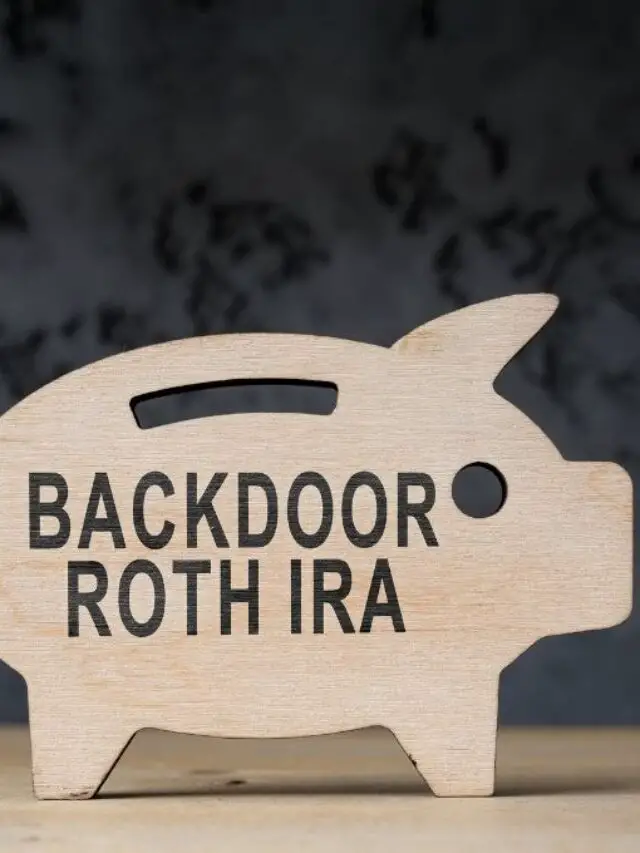In the complex labyrinth of financial options available to homeowners, refinancing constitutes a viable avenue for restructuring debt obligations. Among refinancing choices, this treatise places particular emphasis on the mechanism known as cash-out refinance. As you peruse this document, expect to encounter a cornucopia of nuanced data, specialized insights, and pragmatic exemplifications designed to elucidate this intricate subject matter.
With this scholarly resource, the objective becomes twofold. Primarily, we aim to demystify each component of cash-out refinancing, from its denotation to prerequisites, from its financial ramifications to tax considerations. Subsequently, the aspiration is to serve as an all-encompassing compendium for homeowners desirous of mastering the cash-out refinance milieu.
Table of Contents
| Key Takeaways | |
|---|---|
| ⇝ | Ontological Nature of Cash-Out Refinance: Beyond mere refinancing, this constitutes a method for leveraging one’s home equity into liquid assets. |
| ⇝ | Eligibility Criteria and Prerequisites: Grasp the pivotal role of creditworthiness, revenue consistency, and the loan-to-value ratio in cash-out refinance qualification. |
| ⇝ | The Dichotomy of Advantages and Disadvantages: While proffering numerous financial benefits, cash-out refinance is not devoid of risks; comprehensive evaluation becomes imperative. |
| ⇝ | Fiscal Implications vis-à-vis Taxation: Scrutinize the tax ramifications that accompany cash-out refinance, alongside pertinent legislative statutes. |
| ⇝ | Array of Alternative Mechanisms: Cash-out refinance exists not in isolation but as part of a broader set of financial options, including Home Equity Lines of Credit and home equity loans. |
What is Cash-Out Refinance? A Primer
At its core, cash-out refinance serves as a sui generis financial instrument. It transcends the mere modification of interest rates or loan tenure inherent in conventional refinancing. Through a cash-out refinance, homeowners can supersede their extant mortgage agreement with a novel, more voluminous loan. What differentiates this newly acquired loan from its predecessor? The manifest disbursement of cash.
For illustration, imagine a pre-existing mortgage of $200,000 juxtaposed against a home valuation of $300,000. A cash-out refinance could, under propitious conditions, facilitate the procurement of a new $240,000 mortgage. This transaction simultaneously extinguishes the original mortgage and yields a cash differential of $40,000.
| Useful Tip |
|---|
| Prior to embarking on a financial endeavor of such gravitas as cash-out refinance, seek the counsel of a credentialed financial advisor. The intricate arithmetic involved wields the potency to engender far-reaching implications for your pecuniary equanimity. |
How Much Cash Can You Get? An Analytical Overview
When endeavoring to understand the quantum of cash attainable via cash-out refinance, it becomes incumbent upon us to scrutinize an array of influential variables. These encompass your home’s current market valuation, existing mortgage balance, and the loan-to-value ratio (LTV) your lender countenances.
Influencing Factors and Potential Cash-Out Amounts
| Home Value | Existing Mortgage | LTV Ratio | Max New Loan | Potential Cash-Out |
| $300,000 | $200,000 | 80% | $240,000 | $40,000 |
| $400,000 | $250,000 | 85% | $340,000 | $90,000 |
| $500,000 | $350,000 | 75% | $375,000 | $25,000 |
To elucidate, let’s assume your home’s appraised at $300,000. If your outstanding mortgage sits at $200,000 and your lender’s LTV ratio is 80%, your maximum new loan could be $240,000. Ergo, the potential cash you could access equates to $40,000.
| Useful Tip |
|---|
| Keep in mind that while higher LTV ratios facilitate larger loans, they simultaneously augur higher monthly payments and could necessitate private mortgage insurance. |
Cash-Out Refinance Rules: A Comprehensive Checklist
Navigating the stringent regulations and criteria surrounding cash-out refinance necessitates a thorough understanding of several pivotal factors.
Eligibility Factors and Descriptions
| Eligibility Criteria | Description | Importance Level |
| Credit Score | Indicates creditworthiness, usually a minimum of 620 is required | High |
| Loan-to-Value Ratio | Calculated by dividing the mortgage amount by the appraised value of the home | Moderate |
| Stable Income | Provable, consistent income is often required for loan approval | High |
- Credit Score: Possession of a robust credit score can prove instrumental in not only securing loan approval but also in obtaining favorable interest rates.
- Loan-to-Value Ratio: Your lender will typically mandate an LTV ratio, which must align with their risk-assessment model.
- Stable Income: Ability to substantiate consistent income can influence a lender’s readiness to underwrite your loan.
Advantages and Disadvantages: A Calculated Assessment
Any exploration into cash-out refinancing is rendered incomplete without a holistic evaluation of its merits and drawbacks. In the course of this section, we shall distill these diverse elements into comprehensible units for cogent analysis.
Comparative Metrics of Advantages and Disadvantages
| Advantages | Disadvantages |
| Access to Liquid Capital | Increased Debt Obligation |
| Potential for Lower Rates | Risk of Home Equity Depletion |
| Diversification of Assets | Possible Tax Implications |
- Access to Liquid Capital: The immediate influx of liquidity can be channeled into a variety of capital-intensive ventures, such as home improvements or debt consolidation.
- Increased Debt Obligation: While lucrative, this venture augments your debt portfolio, mandating scrupulous financial management.
| Useful Tip |
|---|
| Prior to committing to this financial modality, ensure a meticulous comparative analysis of potential gains against the landscape of concomitant risks. |
Tax Implications: A Fiscal Microcosm
As in numerous financial machinations, tax implications are woven into the fabric of cash-out refinancing. While not universally detrimental, the implications do vary depending on your specific application of the funds and jurisdictional tax laws.
Tax Scenarios and Consequences
| Use of Funds | Tax Implication |
| Home Improvement | Interest may be deductible |
| Debt Consolidation | Usually non-deductible |
| Investment | Complex; consult a tax advisor |
It’s worth noting that funds utilized for home improvements might allow you to deduct interest payments, pursuant to IRS regulations. Conversely, funds utilized for activities like debt consolidation generally lack this tax benefit.
Alternatives to Cash-Out Refinance: A Panorama of Options
In financial undertakings, rarely does one find a solitary, unchallenged route. Indeed, the cosmos of mortgage refinancing presents its own cornucopia of alternative pathways, each with its unique set of opportunities and pitfalls.
Alternatives and Their Comparative Features
| Financial Instrument | Key Attributes | Potential Pitfalls |
| Home Equity Line of Credit | Flexible usage, revolving credit | Variable interest rates, risk of overspending |
| Personal Loan | No collateral required, fixed repayments | Higher interest rates, limited loan amount |
| Second Mortgage | Can be tax-deductible, set term | Additional monthly payments, risk of foreclosure |
- Home Equity Line of Credit (HELOC): Often seen as an antithesis to the rigidity of cash-out refinancing, a HELOC offers revolving credit that mimics the function of a credit card.
- Personal Loan: For those who balk at the notion of leveraging their abode as collateral, personal loans can serve as a viable albeit potentially costlier alternative.
| Useful Tip |
|---|
| When traversing the complex topography of financial alternatives, a failure to deploy due diligence could induce regrettable missteps. Proceed with judiciousness. |
The Verdict: Cash-Out Refinance—A Prudent Choice or a Fiscal Quagmire?
We arrive now at the terminus of our journey—a normative evaluation of the advisability of opting for a cash-out refinance. While each individual circumstance demands its own specialized analysis, general trends in risk and reward are discernible.
- Scenario One: If your intent aligns with an investment that promises robust returns—perhaps a home renovation or an educational foray—the merits of a cash-out refinance become difficult to contest.
- Scenario Two: On the flip side, employing the liquid capital for transient pleasures or risky gambits could culminate in a precarious financial maelstrom.
Conclusion: An Epilogue to Cash-Out Refinancing
Ah, we’ve navigated the serpentine pathways of cash-out refinancing—each twist and turn revealing disparate facets of this intricate financial mechanism. While it’s incontrovertibly clear that no universal dictum could suffice, given the multitudinous variables at play, we mustn’t overlook the overarching narrative.
- To Recapitulate: A successful utilization of cash-out refinancing hinges on a blend of preparatory groundwork, analytical scrutiny, and sagacious financial strategizing.
- The Coda: Every fiscal endeavor warrants a harmonious coda, one that aligns with your individual melody of life circumstances and financial objectives.
Additional Resources: Your Springboard to Profundity
- Whitepapers and Journals: For those ravenous for an even deeper intellectual sojourn.
- Financial Advisors: Human sagacity often proves unparalleled in navigating financial labyrinths.
Call to Action: Embark on Your Own Quest
If this article has struck a resonant chord, let this be your clarion call. The realm of financial refinancing awaits your exploration. Exercise caution, yet dare to dream.
Frequently Asked Questions (FAQs)
- How Does Rate Differ Between Cash-Out and Standard Refinance?
Typically, the rates for a cash-out refinance tend to hover slightly higher than those for a standard refinance, owing to the augmented risk factor for lenders. - Impact on Credit Score: Is It Substantial?
A cash-out refinance can initially dock a few points off your credit score due to the credit inquiry. However, successful payments could ameliorate this dip. - Can I Engage in Multiple Cash-Out Refinances?
While theoretically possible, successive cash-out refinances could expose you to escalating financial risk and lessen your home equity. - Duration for Loan Approval: What Should I Anticipate?
Standard timelines oscillate between 30 and 45 days, although variables such as lender backlog could extend this period. - Is Private Mortgage Insurance (PMI) Inevitable?
If your remaining home equity falls below 20%, the imposition of PMI becomes a distinct possibility. - Debt-to-Income Ratio: How Salient Is It?
This metric is often pivotal, serving as a financial yardstick for lenders gauging your ability to manage repayments. - Refinancing Fees: Can They Be Rolled Into the Loan?
Yes, although doing so would increase both your loan amount and overall interest outlay. - Variable vs Fixed Rates: Which One Prevails?
Fixed rates offer predictability, whereas variable rates flirt with both risk and potential benefit. - Do Regulations Vary by State?
Affirmative. Jurisdictional idiosyncrasies may introduce specific regulations and tax scenarios. - Is Cash-Out Refinancing Admissible for Investment Properties?
Generally, yes, but brace yourself for stricter criteria and loftier interest rates.

Prashant Chauhan
Author @ Finance RuffleMeet Prashant Pratap Chauhan, the savvy founder behind Finance Ruffle, a hub for sharp financial insights and expert analysis in the realm of finance blogging.









